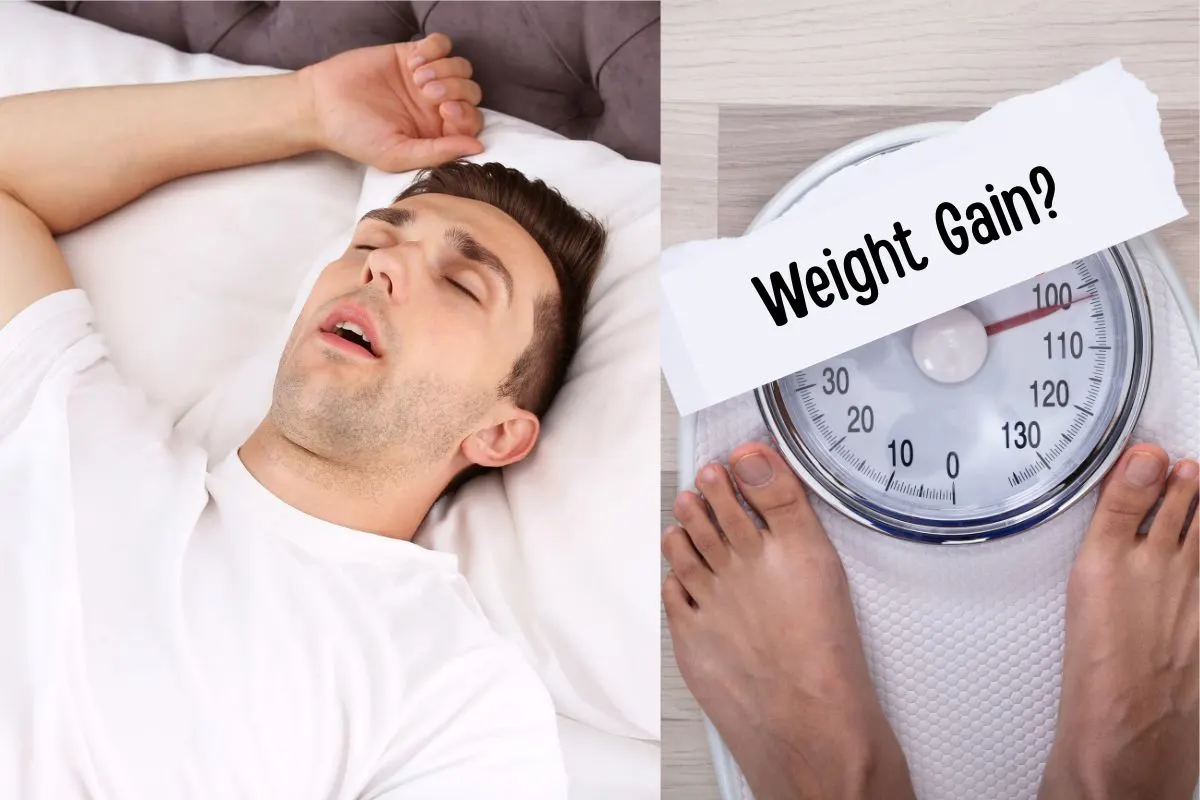
The Science Explained Many people think of sleep apnea as just loud snoring or occasional fatigue, but the reality runs much deeper. One of the lesser-known, but scientifically proven, connections is between sleep apnea and weight gain. If you’ve ever asked yourself, “Can sleep apnea cause weight gain?”, you're not alone.
In fact, users are often skeptical and need a clear, evidence-backed explanation of how a sleep disorder could affect their metabolism, hunger hormones, and ultimately, their ability to maintain or lose weight. Let’s break it down.
What is Sleep Apnea? A Quick Refresher
Before diving into the weight connection, let’s define what sleep apnea is. Sleep apnea is a disorder in which your breathing repeatedly stops and starts during sleep. The most common form, obstructive sleep apnea (OSA), occurs when throat muscles relax and block the airway.
This disruption prevents restful sleep and starves the body of oxygen throughout the night. Over time, it leads to symptoms like daytime fatigue, irritability, headaches, brain fog, and difficulty losing weight.
Can Sleep Apnea Cause Weight Gain? Yes - Here’s How
The short answer: yes, sleep apnea can directly and indirectly cause weight gain. But how?
1. Hormonal Imbalance:
When you’re sleep-deprived, your body’s hunger hormones get thrown out of balance. Leptin, which signals fullness, decreases, while ghrelin, the hunger hormone, increases. This imbalance causes you to crave high-calorie, carb-heavy foods, often late at night.
2. Insulin Resistance:
Poor sleep contributes to insulin resistance, a condition where your body doesn’t use insulin effectively. This can lead to higher blood sugar levels and increased fat storage, especially in the belly area.
3. Low Energy = Less Movement:
Sleep apnea sufferers often feel exhausted during the day, which means less physical activity and more sedentary habits. This combination of increased caloric intake and reduced energy expenditure creates a perfect storm for weight gain.
4. Stress and Cortisol:
Chronic poor sleep from apnea also increases cortisol, the stress hormone. High cortisol levels can slow your metabolism and promote fat storage, especially visceral fat.
So, how does sleep apnea cause weight gain? The answer lies in a complex web of sleep disruption, hormonal shifts, reduced oxygen, and lifestyle impacts that all lead to gradual (and stubborn) weight accumulation.
The Vicious Cycle: Weight Gain Worsens Sleep Apnea
It gets worse: the more weight you gain, the more likely you are to develop or worsen sleep apnea.
Excess fat around the neck and upper airway can make it more likely for your throat to collapse during sleep. Even a small increase in weight can significantly increase the severity of your apnea. That’s why breaking the cycle is so important and often, the first step is diagnosing and treating the apnea itself.
How Much Weight to Lose to Get Off CPAP?
One of the most common questions people ask is: “How much weight do I need to lose to stop using a CPAP machine?”
While it varies for each person, studies have shown that losing just 10% of your body weight can lead to a noticeable reduction in sleep apnea severity. In some mild to moderate cases, losing 20 to 30 pounds may reduce symptoms enough to stop CPAP use altogether, with your doctor’s guidance, of course.
However, it’s important to note that weight loss alone doesn’t always cure sleep apnea. Some people with normal body weight still have the condition due to structural or neurological factors. Still, weight loss improves outcomes in nearly all cases and should be part of a comprehensive treatment plan.
Sleep Apnea and Weight Loss: Why CPAP Might Help You Slim Down
Interestingly, sleep apnea weight loss is often more successful once the apnea is treated. Why? Because CPAP therapy improves sleep quality, restores hormonal balance, and helps regulate appetite. When you're no longer waking up exhausted and craving sugar, it’s much easier to make healthier food choices and stay active.
Treating sleep apnea doesn’t just make you feel better, it creates a healthier internal environment that supports long-term weight loss.
Final Thoughts: Treating Sleep Apnea Can Help You Take Control of Your Weight
So, can sleep apnea cause weight gain? Yes, and the science backs it up. Disrupted sleep interferes with hormones, increases cravings, lowers energy, and slows your metabolism. Over time, this leads to gradual weight gain and worsens sleep apnea, creating a cycle that’s hard to break without proper treatment.
But here’s the good news: once sleep apnea is managed, especially with consistent CPAP therapy many people find it easier to lose weight, regain energy, and feel like themselves again. If you’ve been struggling to lose weight despite your best efforts, sleep apnea could be the missing piece of the puzzle.
And when you’re ready to take that step, it’s important to choose high-quality, trusted equipment to support your journey. Visit cpapRX’s website to explore a curated selection of the best sleep apnea machines and accessories, designed to help you breathe better, sleep deeper, and take back control of your health.